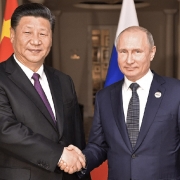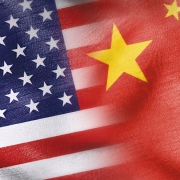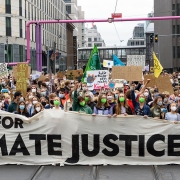Why Globalism Failed
Not so long ago, the West was captivated by visions of the ‘end of history’. Francis Fukuyama, Thomas Friedman, Kenichi Ohmae and others envisaged the permanent triumph of a global neoliberal order. They foresaw the emergence of a system controlled by an ever-expanding army of technocrats and professionals, concentrated in a handful of great cosmopolitan cities, riding on ‘advanced’ industries and services.
That world has been turned upside down. Today’s world – divided by geopolitics – looks closer to the one conceived by Samuel Huntington in his 1993 essay, The Clash of Civilisations.
Nations, it turns out, do not share the same worldview. Russia has turned inwards, adopting an ever more quasi-Tsarist, Orthodox pose. China, having used capitalism and capitalists to achieve its greatest power for a half-millennium, is now reverting to a model indebted to both the imperial past and Chairman Mao. In other parts of the world, primitivist urges, whether Islamic or evangelical Christian, have reasserted themselves.
It is countries like China, not the avatars of liberalism, that are now clearly ascendant. Over the past 20 years, the share of the world economy controlled by the G7 (Canada, France, Germany, Italy, Japan, the UK and the US) has shrunk from 65 to 44 per cent. Today, China produces almost as many manufactured goods as the US, Japan and Germany combined. This is one reason why there are now more billionaires in Beijing than in New York City.
Amid a generally weak global economy, the fastest growth now takes place in India, as well as resource-rich Saudi Arabia and parts of Africa. In terms of purchasing power, the combined wealth of the Global South-dominated BRICS nations – Brazil, Russia, India, China and South Africa – surpasses that of the G7.
The new realities are also altering the geography of wealth and power in the high-income countries. Not long ago it was seriously suggested that ‘mayors’ should ‘rule the world’, since economic growth was destined to cluster in a handful of superstar cities. Now even the New York Times bleakly warns of an ‘urban doom loop’, noting that America’s big cities lost two million people between 2020 and 2022. The world coming into being will not be the exclusive plaything of elites in London, New York or Berlin. Instead, they will have to compete with places like Dallas, Phoenix and the exurbs of Houston, as well as Eastern centres like Beijing, New Delhi and Mumbai.
What went wrong for the globalists?
Once-confident globalists failed to pay attention to three critical issues: the continued importance of the material realm, the crucial role of demographic change and, lastly, the importance of culture.
The war in Ukraine shows how the material economy still matters. It has intensified the global struggle for food, energy and critical minerals. And it has widened divisions across the globe – including within the West. Tellingly, very few non-Western countries have imposed sanctions on Russia, largely due to their interest in its vast natural resources. India, most of Latin America and Africa are currently buying Russian raw materials at discounted rates.
Read the rest of this piece at Spiked.
Joel Kotkin is the author of The Coming of Neo-Feudalism: A Warning to the Global Middle Class. He is the Roger Hobbs Presidential Fellow in Urban Futures at Chapman University and Executive Director for Urban Reform Institute. Learn more at joelkotkin.com and follow him on Twitter @joelkotkin.
Photo: Samuel Zeller, under CC 1.0 Public Domain.








